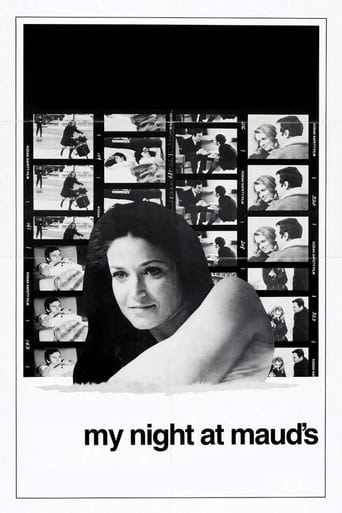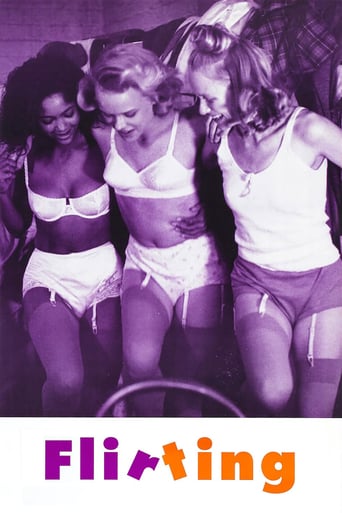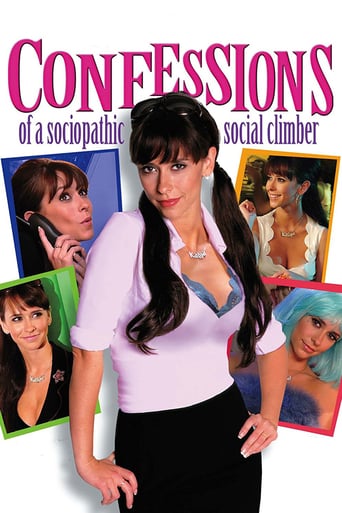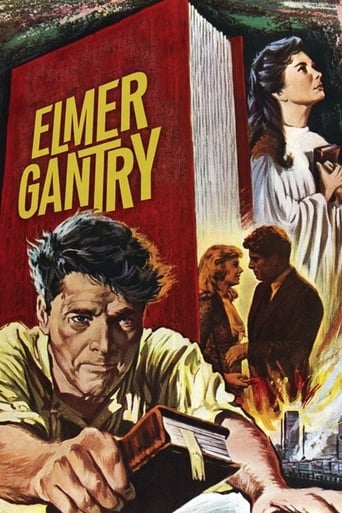

My Night at Maud's (1969)
The rigid principles of a devout Catholic man are challenged during a one-night stay with Maud, a divorced woman with an outsize personality.
Watch Trailer
Cast


Similar titles
Reviews
I saw this back in the day, and -- unlike other French New Wave films -- this film changed my view of film making. Having seen it several times recently, however, I now think it is far better than I thought although I also think that it takes repeated viewings to fully appreciate (is that so unforgivable?). Many reviewers begin with the discourses on Pascal's wager and others refer to Rohmer's confirmation of middle class values. But I suggest that the film is really two films, both of which are fascinating, and which magnify each other. The first is the struggle between a strong woman (Maud) and a man superficially fixated on his image the woman-for-him (Jean-Louis). Here the film enjoys the happy coincidence of perfect casting and great acting. The second film is about all the talk that everyone else except Maud takes so seriously. The real drama is the first film. The second is just an ironic commentary on the first, but is crucial for revealing character, mostly Jean-Louis', but finally everyone's. Yes, the film has ambiguity (hence the need for repeated viewings), and the ambiguity adds to the drama of Jean-Louis' confusion about his pre-fab future. But I think the moral heart of the film, and the real assessment of characters, is defined by the honesty of their speeches, which is almost impossible to track on the first viewing. (You get the underlying drama at first, but not the intricacies of character revelation.) In the end, only one character proves really honest, and I find that to be the truly poignant -- and not entirely explicit -- implication of its ending. Some reviewers here got the point. But please ignore the griping of Franco-phobe pseudo-intellectuals who miss the point (unless of course you fit that description.) This timeless film is 10 out of 10.
This is a look at one man's working through love and lust while trying to adhere to his Catholicism. Pretty talky. The main character is an engineer and mathematician; Pascal comes into the conversations in several places, particularly in the context of "Pascal's Wager." Also, Jansenism is mentioned a couple of times (I had to look it up). This film may have the most meaning for Catholics. The intellectualizing is presented in the context of ordinary conversations and interactions among intelligent people--I never felt that I was being preached at or assaulted with pithy comments coming from the overactive imagination of a screenwriter out to impress. The performances are fine and the presence of the beautiful Françoise Fabian (as Maud) is a plus. There is a precision, yet poetry, in the black and white photography.I think Rohmer took a page out of Truffaut's book for the final scene.
There are several hilarious scenes in which Maud practically throws herself at Trint. These nonsensical sexual shenanigans culminate in the morning-after(-nothing-happened) (after Le Nuit Spectaculaire Philosophique) when she almost tries to rape him. However, his Catholic faith turns out to be far far too resilient, withstanding even the most un-withstandable temptation of them all (a nude Maud in heat)! If you didn't laugh there, then you're taking this overrated flick far far too seriously.It seems as if almost every (older) French film contains at least some element of a fanciful male fantasy. Sexy-looking women/girls throwing themselves breast-first into the sweaty hands of crappy-looking (usually aging) men: what nerdy, middle-aged, sexually-neglected film critic wouldn't drool all over his sofa over that, later hyping the movie for all its worth? After he finishes wiping off the drool, the film critic proceeds to devise a way to justify his fascination for the movie (god forbid he should admit that the real reason was sexual titillation) with a clever(?) cover-up reason: some cockamamie semantic word-salad about the alleged philosophical insights which the said movie offers. Some nonsense that, at closer scrutiny, holds little or no water. However, most film students (usually lobotomized at birth) gobble that stuff up and that's how such a movie gets considered to be not just a mere mortal's produce, but a gift from God Himself. Rohmer, the God. (Of course, since film students are mostly political extremists, their real god is usually Marx.)(But at least this time around the female throws herself at someone her own age. Usually we have lolitas and 55 year-old men.)I, too, occasionally enjoy male fantasies in certain films (no, not just porn), but at least I'm honest about it. I admit it, instead of making lame excuses and explanations about the movie having blown me away with its "wise" musings on Marxism, Pascal, Catholicism, and mathematics.Speaking of which, Pascal's retarded "small probability / high gain" wager is only matched by Vidal's cretinous world-view (small wonder: a flaming Marxist). Vidal is a philosophy professor, and as 90% of all Western university professors he is staunchly Left-wing. This is one of the rare aspects of the movie that IS realistic. Btw, if one of Rohmer's intentions was to bring us closer to Pascal - getting us to rush to libraries and bookstores in search of his pitiful ideas - he may have failed, at least in my case; all Rohmer accomplished was to remind us how utterly cretinous many aspects of that Frenchman's philosophy are.Much of the philosophic dialogue isn't nearly as intelligent as might appear to the more impressionable, indiscriminating viewer: more often than not an idea/concept is brought up by one character, only to be responded with a non-sequitor or with a reply that is only vaguely related to the question/issue at hand. Hence the "thoughtful" exchanges were sometimes decidedly UNintelligent, almost schizophrenic in nature with characters talking past each other. Naturally, the actors were given instructions to babble the philosophy-related lines as quickly as possible so as not to give the viewers a chance to realize how many of them stink from a logic standpoint.How to classify MNAM... A romantic philosophical drama? Most of the dialogue consists of discussions about the above-mentioned four subjects. Even the "flirtation" between Trint and Maud sounds more like two deluded philosophy students chewing over age-old ideas than two horny 30-somethings - and they ARE both horny, not just male-fantasy-fulfilling Maud.Maud is obviously the image of the ideal woman in Rohmer's eyes. She is as fictional as Darth Vader. Try finding a woman like this: good luck! (This is not intended as criticism of the movie.) Rohmer tries to sell Maud as a perceptive, intelligent, and witty person, which may all be true to some extent, but it's all overshadowed by the simple fact that she is a tart who will try to lure a man into bed a mere 15 minutes after having met him for the very first time. Realism? Not much. The fact that she is undeniably/objectively sexy, whereas Trint is much closer to resembling a sneaky little child-molester more than a Paul Newman-like stud, doesn't exactly help the movie's constantly rising absurdity levels either.How about Vidal's motives for introducing Trint to the nymphomaniac Maud? "He wanted to free himself from me by throwing you in my arms". Which human universe or dimension had Rohmer resided in? He may have been an expert on the so-called "human condition", but only as it relates to some imaginary humans he had invented in his twisted view of mankind out of which resulted the semi-bizarre psychology of his characters.MNAM has some typically confusing 60s-Euro-trash moments: at one point Trint gets the promise of a first date with the church blond, but then just a scene later he kisses Maude for the first time. And what happens next? Trint tells Maude that it was "just a kiss of friendship". Huh?? Did I miss out on any scenes in-between? Did the editors all get fired before they managed to complete putting the film together in one coherent piece? Trint's behaviour is totally irrational. In those two scenes Rohmer manages to complete destroy any potential for understanding Trint's character. Not to mention that nonsense about "the kiss of friendship" (it wasn't a cheek kiss, that much I can reveal). Does one need to be French to understand that kiss - or these people? Or does one just need to be properly soused to connect all the dots in a (subjectively) meaningful manner?...La Grande Revelation de Fin didn't impress me either. So the blond tart was the one who had an affair with Maud's ex-husband? WOW. What a plot-twist. I was shaking with excitement.I'm not saying this is a bad movie, merely that it is ridiculously drooled over by people who are susceptible to BS. It's watchable, not too dull.
No, not the movie. I saw this movie for the first time when it was released in 1969 in Portugal. I went because everybody told me to go. The first person that told me to go was a janitor that worked for the university where I was studying. He told me something like: "This movie made me reconsider the values by which I have been ruling my life...". With several of my colleagues confirming the janitor's opinion about the sublimity of the work, I went. And left after 30 minutes. For the whole time I hoped that somebody would step in that apartment and held everybody at gun point. No, I didn't want to make it into a Rambo movie. I just wanted to give these people some REAL problems to worry and talk about. No, what I find interesting about this movie are the published comments. These are fun and actually give the movie an unexpected meaning that I missed when I saw it: It deeply touches the hearts of people that, like the characters, have no real problems or challenges in their lives! But, who am I to voice these opinions?














